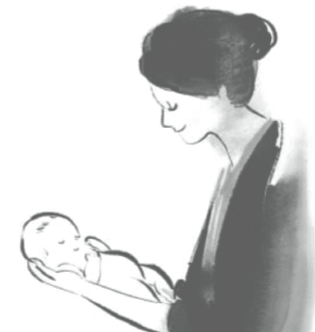
In 2009, when the Korean Unwed Mothers Families Association was founded, about 1,000 children were adopted overseas, and 97 per cent were from unwed mothers. And in 2019, 100% of overseas adoptees from Korea were children of unwed mothers. This statics shows just how difficult it is for unwed mothers to raise their children in Korea.
South Korea is one of the world’s leading OECD countries, but people’s perception of women remains in the old days. Society morally condemns A woman who gave birth to a child without marriage. In particular, society judge and criticize unwed mothers for being sexually promiscuous, and even their families don’t protect unwed mother. During pregnancy, families force them to have an abortion, and there is no way but to leave their homes only to save their children, and when they enter unwed mothers’ facilities, they are continually pressured or forced to give up their babies for adoption. Under this situation, unwed mothers who chose to raise their children rather than abortion and adoption came together to create a better society for themselves so that they were firmly resolved to raise their children by helping one another since neither their families nor the country was helpful to them.
The perception of unwed mothers has slowly progressed for the last decade, even though many concerns and criticism caused it. However, according to a recent survey of unwed mothers from October 2017 to May 18, 93 per cent of unwed mothers were still forced to abort or adopt after conception and childbirth. As of 2017, the number of children adopted overseas has decreased to 400, but most of them are still from unwed mothers. Without support from their families, they are destined to fall into poverty because they cannot get any help related to pregnancy and childbirth, and few companies hire unwed mothers when they know their status through background checks. That is why when unwed mothers decide to raise their children, they become poorer and less confident and are more likely to have lower self-esteem as they go into hiding.
There is a lack of financial support from the government, too. In Korea, 200,000 won (180 USD) a month is given to a single parent if the monthly income is less than 1.55 million (1400USD). Considering the average Korean household monthly income is hovering around 4 million won (3640USD), based on a survey conducted by the National Statistical Office and Bank of Korea in 2017, it is unfortunate to say that the governmental financial support does not practically benefit single-parent families at all. Unwed mothers, those who receive no proper help during pregnancy or childbirth and fear social abuse, go to extreme ways of abandoning or killing their children in some cases. In short, despite the fast-growing society, Korean unwed mothers are in a dead zone, resulting from the lack of governmental support, unnecessary bureaucratic barriers, and deep-rooted prejudices.
Background Check
Birth certificates or family certificates are often used for public submission in many different social settings. In Korean society, unwed mothers’ children are labelled as extra-marital children on the birth registry. When unwed mothers register their children’s birth, they should tick the box’ extra-marital children’ on the birth report form. This has no legal disadvantage against them as well as their children. Nevertheless, after their paper is seen by others, either in schools or workplaces, they face obscure and unjustifiable disadvantages in reality.
